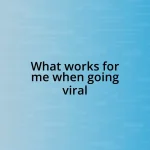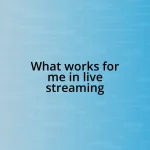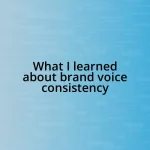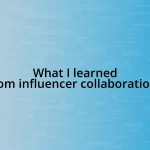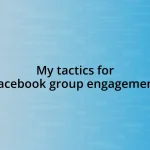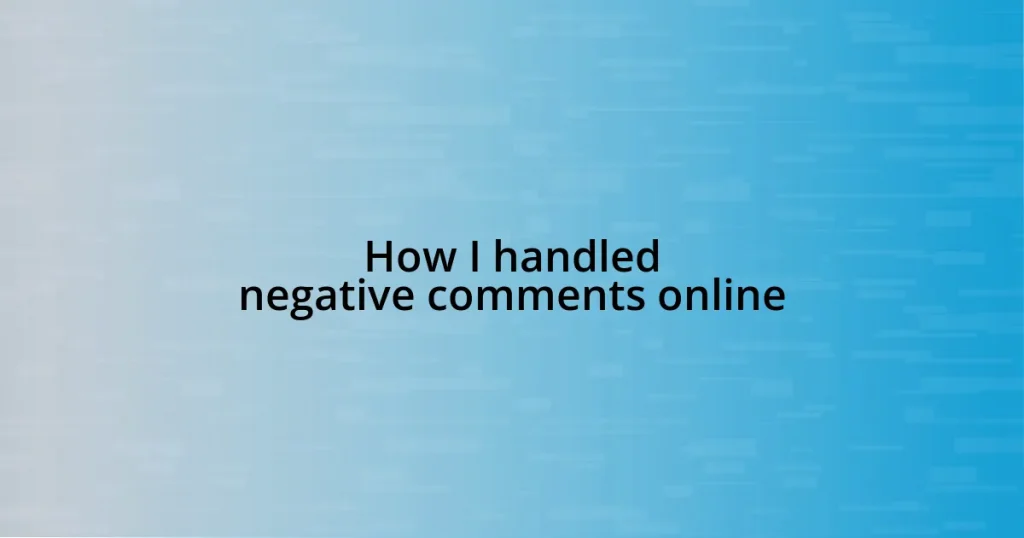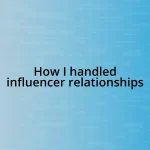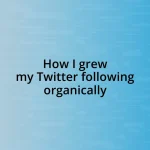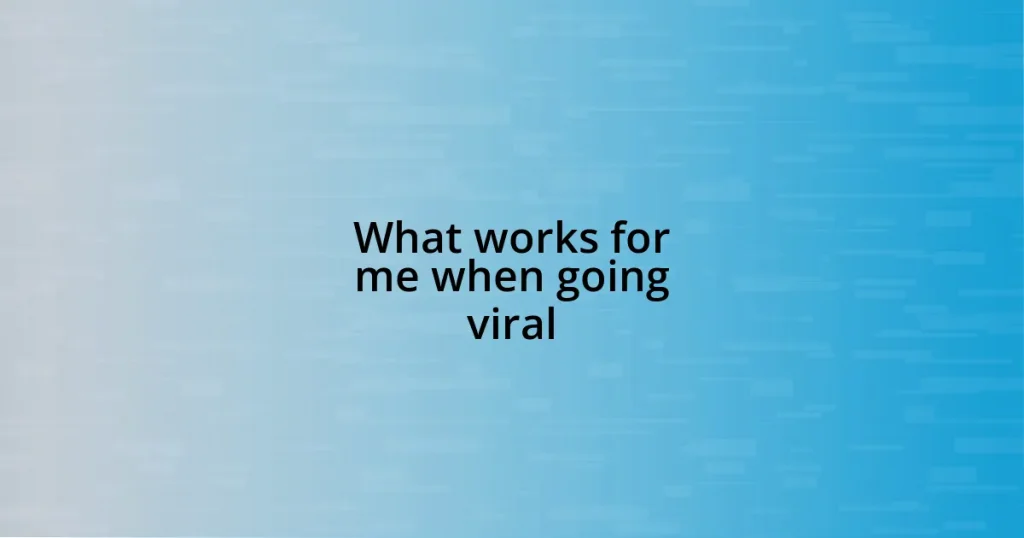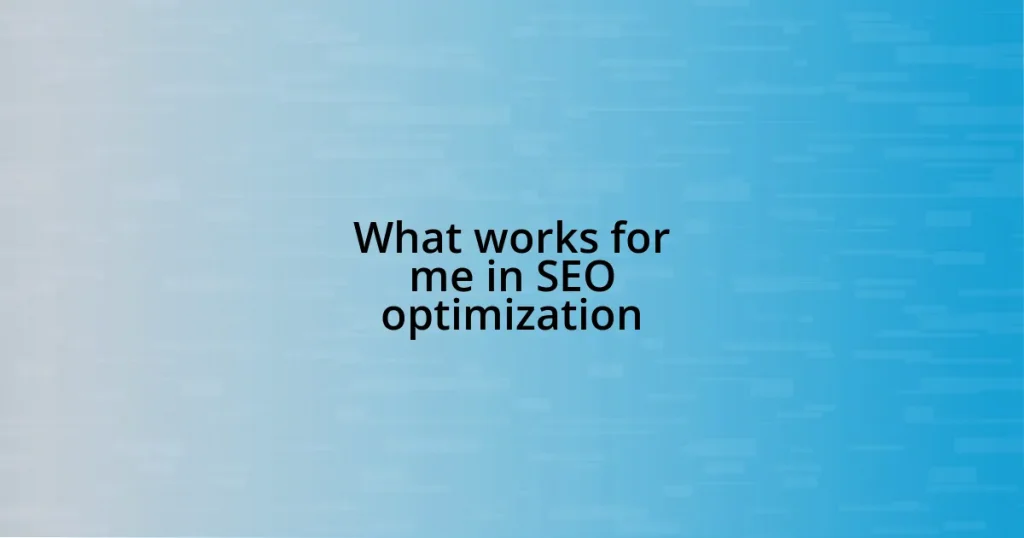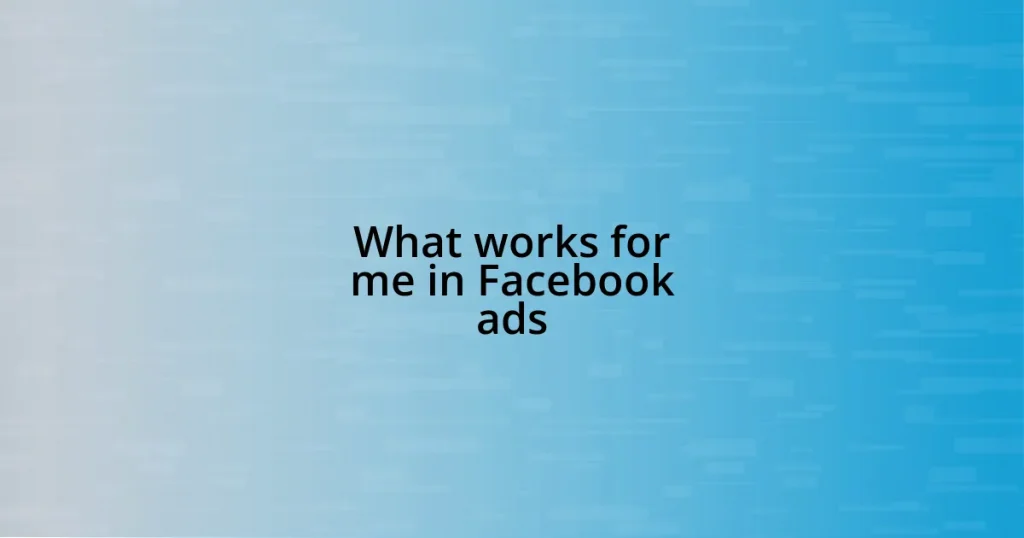Key takeaways:
- Negative comments often reveal more about the commenter’s insecurities rather than the quality of your work.
- Transforming negativity into constructive feedback is essential for personal and professional growth.
- Maintaining emotional resilience through mindfulness and a supportive community can buffer the impact of harsh critiques.
- Engaging positively and humorously with trolls can disarm negativity and shift the conversation to a lighter tone.
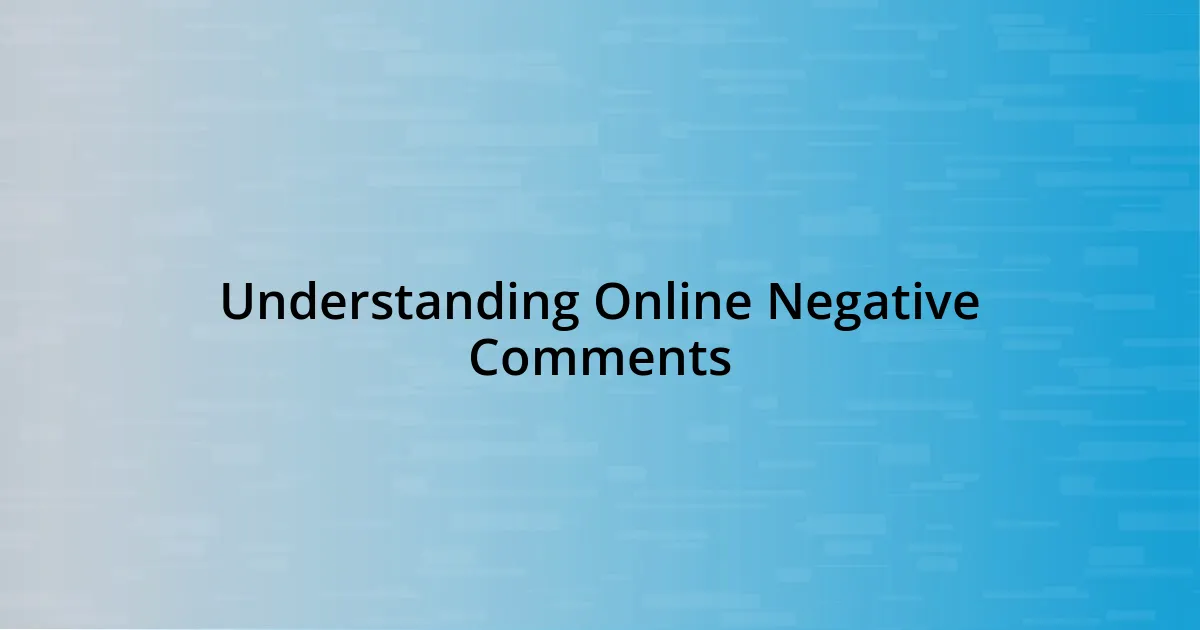
Understanding Online Negative Comments
Negative comments online can feel like an unwelcome punch to the gut. I remember a time when a casual post about my favorite book sparked a wave of criticism. The comment section became a battleground, and I found myself questioning not only my taste but also my worth as a contributor to the online community.
It’s essential to understand that these comments often reflect more about the commenter than about you. I’ve noticed that many negative remarks stem from a place of insecurity or misunderstanding. Have you ever wondered why someone feels the need to criticize, rather than engage positively? It can be an eye-opener to realize that their negative energy may be rooted in their own struggles.
Navigating through negative feedback requires a mindset shift. I’ve learned to view critical comments as opportunities for growth rather than personal attacks. For instance, when I received a harsh critique on my writing, I took a step back and analyzed the feedback. Was there any truth to it? Embracing such reflections can transform negativity into a catalyst for self-improvement.
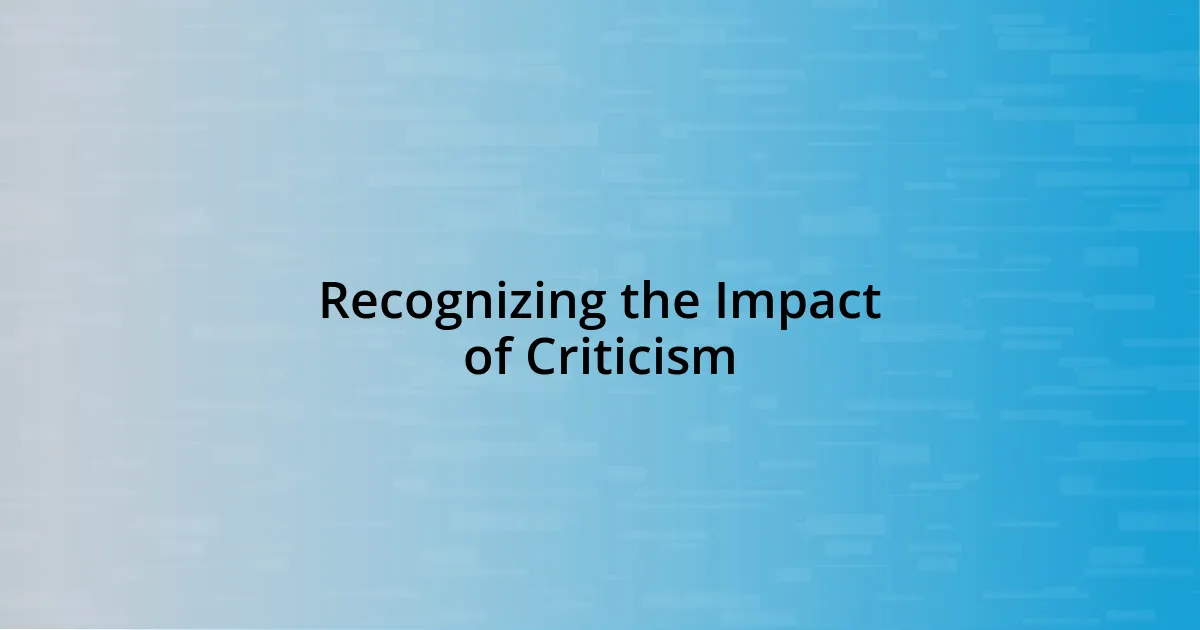
Recognizing the Impact of Criticism
Recognizing the impact of criticism is crucial for maintaining mental clarity in the chaotic world of online interactions. I recall a time when a particularly harsh comment about my photography felt like it left a stain on my confidence. In that moment, the sting was palpable; it made me question my talent. Yet, over time, I’ve come to see that these critical remarks can serve as reflections of personal taste and experience rather than direct assaults on my capabilities.
When we take a step back, we can discover several aspects to consider regarding negative feedback:
- Emotional Weight: Criticism can evoke strong feelings, often overshadowing positive reinforcement.
- Perspective: It’s all about the viewpoint – what bothers one person may be a point of admiration for another.
- Growth Opportunities: Negative comments can unveil areas for improvement, fostering personal and professional development.
- Community Dynamics: Understanding the motivations behind critics often reveals group dynamics and differing opinions inherent in online spaces.
I find that acknowledging these effects helps me keep my focus where it matters: on my journey and the joy I find in sharing my interests.
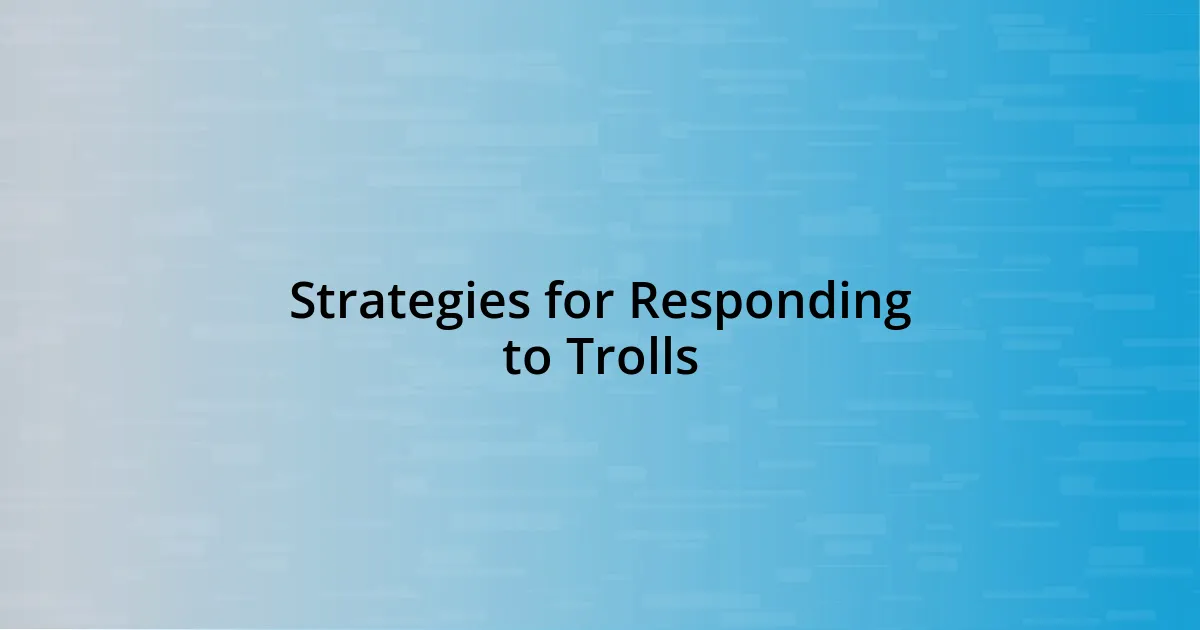
Strategies for Responding to Trolls
When dealing with trolls, my go-to strategy has often been to adopt a calm and collected approach. I’ve learned that engaging with negativity only fuels the fire. For example, I remember a time when a troll targeted a video I made about cooking techniques. Rather than retaliate with a snarky comment, I simply replied with a light-hearted acknowledgment and moved on. This disarmed the negativity and often left them with nothing more to say, which felt incredibly empowering.
Another effective strategy is to utilize humor. Just recently, a commenter ridiculed my attempt at a humorous meme. Instead of taking it to heart, I replied with a playful jab, referencing how I was still stuck in the “dad joke” phase of comedy. This kind of response not only shows that I don’t take myself too seriously but also turns the situation into something fun rather than hostile. Creating a light atmosphere can sometimes convert a troll into a simple bystander.
Lastly, it’s crucial to know when to disengage. I’ve had instances where no matter how rational or funny I tried to be, the trolling continued. In such cases, I found it more beneficial to simply block and report the user. This not only protects your mental well-being but sends a clear message that disrespectful behavior will not be tolerated. Empowering yourself to step away often leads to a more positive online experience.
| Strategy | Description |
|---|---|
| Stay Calm | Respond without hostility; it often disarms trolls. |
| Use Humor | Light-hearted responses can diffuse tension and change the mood. |
| Know When to Disengage | Blocking or reporting trolls protects your well-being. |
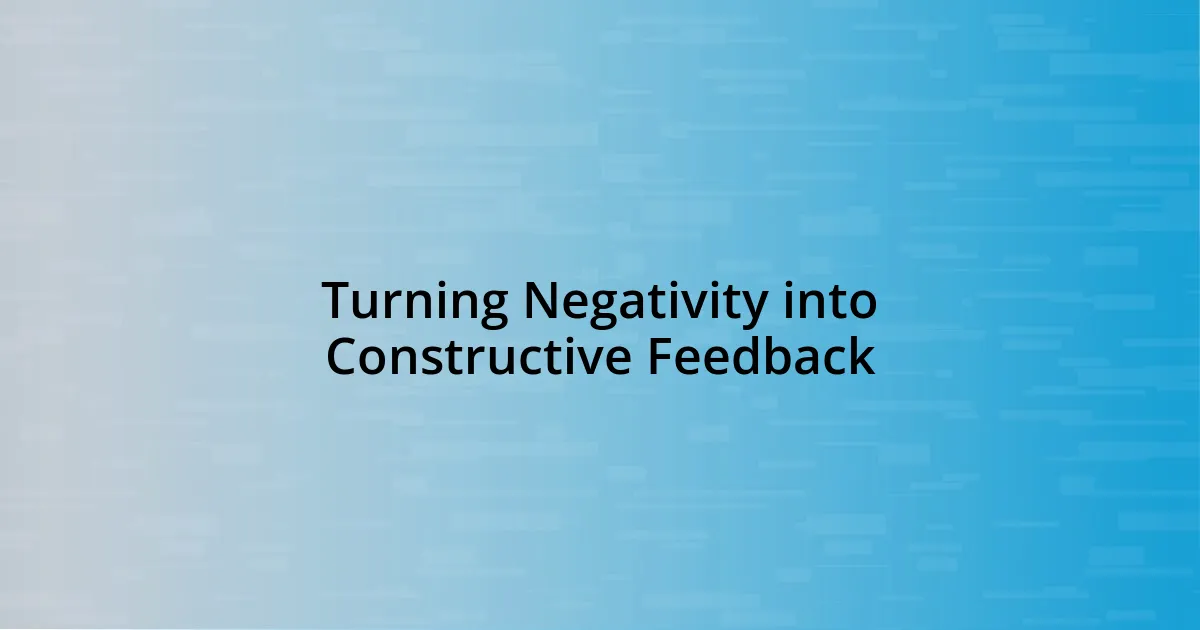
Turning Negativity into Constructive Feedback
Embracing negativity in a constructive manner has been a valuable lesson for me. I remember receiving a harsh comment about a piece I wrote, and instead of seeing it as a personal attack, I chose to dissect it. Was there a truth hidden in the harsh words? I soon realized the critic pointed out vague areas in my argument. This opened a door for me to refine my writing and strengthen my narrative. It was like stumbling upon a rough diamond; with a little polishing, it could shine.
The process of transforming negativity into constructive feedback often hinges on mindset. I started asking myself questions, like, “What can I learn from this?” or “How might this feedback be a reflection of the audience’s expectations?” One time, a commenter pointed out the technical flaws in my photography that I had been hesitant to acknowledge. I took that feedback and enrolled in a photography course. Not only did it improve my skills significantly, but it also reignited my passion for the art form – all because I learned to embrace criticism as a tool for growth.
Moreover, it’s fascinating how a shift in perspective can change the entire landscape of negative feedback. I often find that some criticism arises from a place of passion or strong opinion. When I encountered a negative comment on my travel blog, the user expressed disappointment in my choice of destinations. Rather than dismiss it, I engaged them in a conversation about their preferences. This turned a potentially hurtful moment into a rich dialogue that deepened my understanding of my audience. Could it be that negativity sometimes invites deeper connection rather than division?
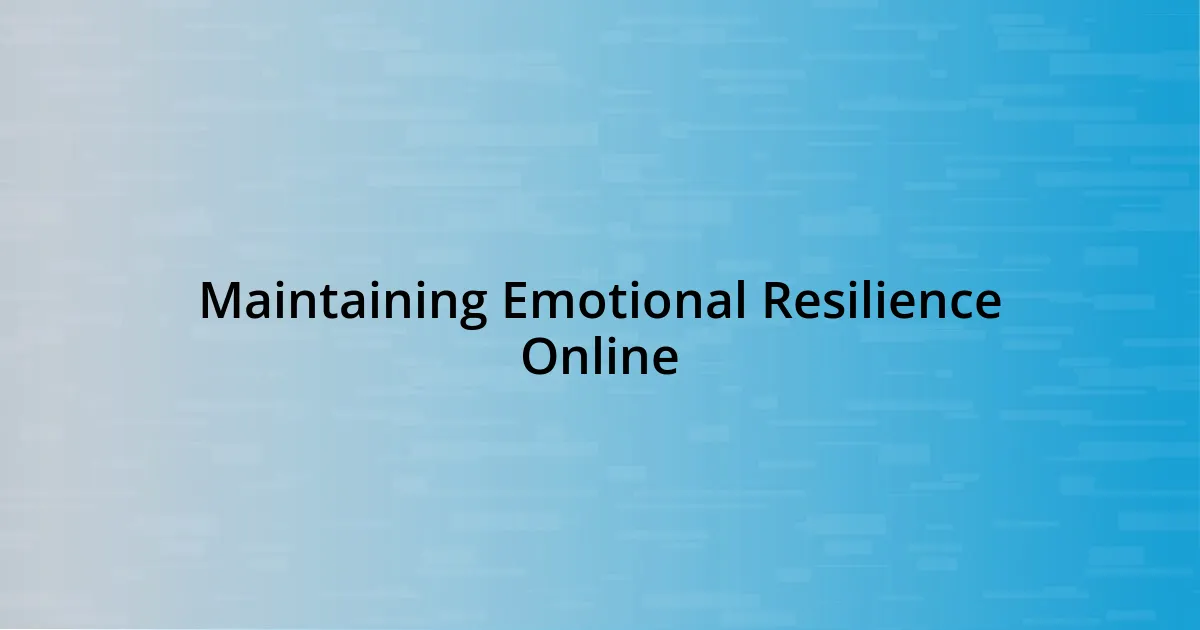
Maintaining Emotional Resilience Online
Maintaining emotional resilience online is vital, especially when negativity strikes. I remember a time when I posted a heartfelt story about a challenging personal experience. The backlash came swiftly, with some commenters labeling me as overly dramatic. Instead of drowning in self-doubt, I reminded myself of the purpose behind sharing—connection and vulnerability. This perspective allowed me to feel grounded and reaffirmed my commitment to authenticity.
I’ve found that cultivating a strong support system can make all the difference. After receiving a particularly harsh comment about my artistic work, I turned to friends who understand my journey. Their encouragement reminded me that not everyone will resonate with my style, and that’s perfectly okay. Engaging in heartfelt conversations with those I trust helped buffer the sting, reinforcing my belief that art is subjective and personal.
Practicing mindfulness also plays a crucial role in maintaining emotional resilience. I often take moments to step back and breathe before responding to negativity. In those brief pauses, I ask myself: “Will this comment matter a week from now?” This simple question shifts my perspective, allowing me to see the bigger picture. Once, after reading a particularly cutting remark, I paused, reflected, and realized the comment stemmed more from the commenter’s frustrations than my work itself. I found solace in this realization, reminding me to keep my emotional compass steady amidst the chaos.
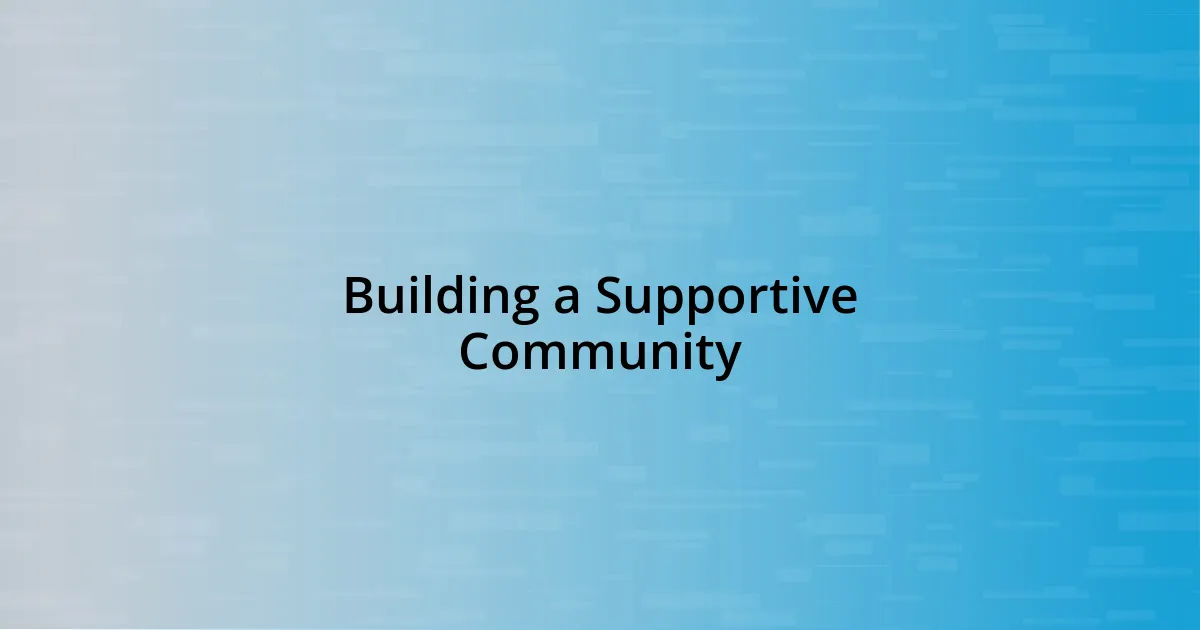
Building a Supportive Community
Building a supportive community requires intention and effort. I once decided to create a private chat group with fellow creators after a wave of negative interactions on social media. The difference was astounding. By sharing our experiences and offering encouragement, we developed a nurturing space where everyone felt safe enough to express vulnerability. It made me realize how invaluable it is to surround yourself with those who lift you up rather than tear you down.
Engagement is another critical element in building support. I recall a time when I hosted a live Q&A session to connect directly with my followers. The initial fear of facing criticism quickly faded as the comments rolled in—many were positive and heartfelt. I made it a point to address every question, fostering an open dialogue that not only enriched our community but also quelled the negativity that sometimes arose. Could it be that the more we connect, the less we allow negativity to settle in?
Additionally, celebrating each other’s victories, no matter how small, can strengthen bonds. I remember applauding a friend for their recent milestone in a Facebook post, and it sparked a wave of similar acknowledgments within our group. This shared positivity created an atmosphere where each member felt valued, transforming the narrative around support. Isn’t it fascinating how simply uplifting each other can create a ripple effect of encouragement that drowns out negativity?
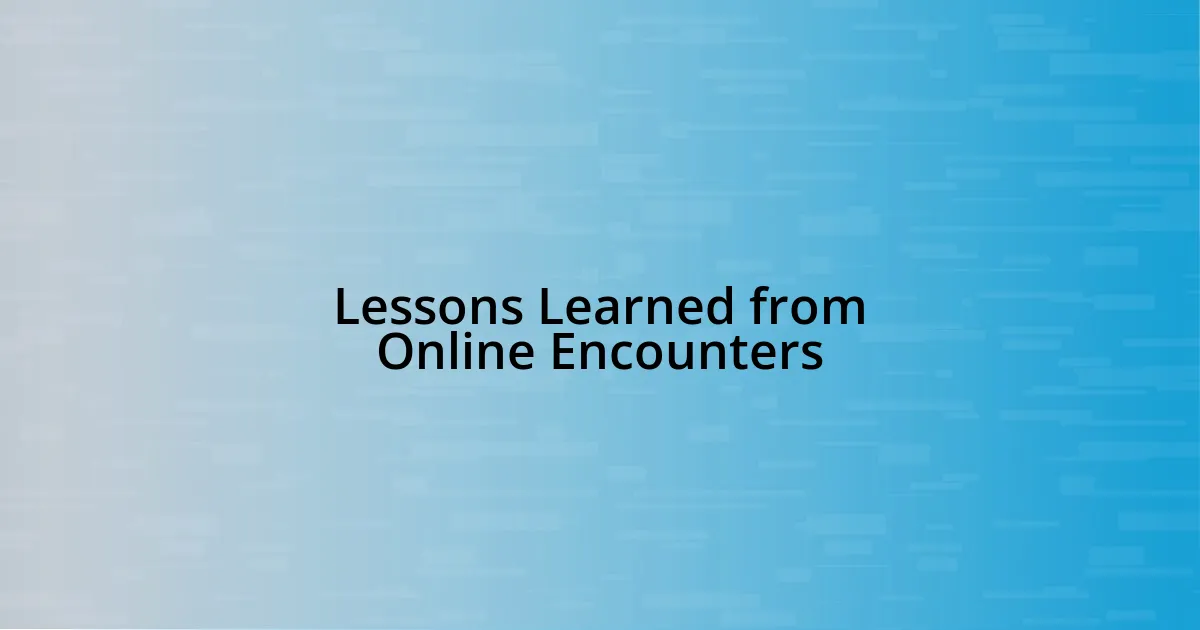
Lessons Learned from Online Encounters
Receiving negative comments online has taught me that perspective is key. I vividly recall logging onto a forum one day to find a thread discussing my last blog post. At first, I felt my heart sink reading some harsh critiques. But then I remembered a mentor’s advice: “Not everyone’s opinion needs to affect you.” This realization shifted my focus from the critique to what I could learn from it, helping me grow rather than shrink.
Another lesson I’ve taken to heart is the power of vulnerability. I once shared a personal setback in a post, bracing myself for backlash. To my surprise, many readers responded with their own struggles instead, creating an unexpected dialogue filled with empathy. This experience emphasized that sharing my truth can build connections, turning negativity on its head. Have you ever shared something personal online? If so, you may have noticed how genuine honesty often invites positivity.
Lastly, I learned the importance of self-compassion in these online encounters. After a particularly scathing review of my written work, I took a moment to reflect on my feelings rather than dismiss them. It struck me that allowing myself to feel hurt, yet reminding myself of my growth journey, is a form of resilience. Have you given yourself that grace when facing criticism? Taking the time to practice self-love amidst the chaos often leads to a deeper understanding of both ourselves and our critics.
